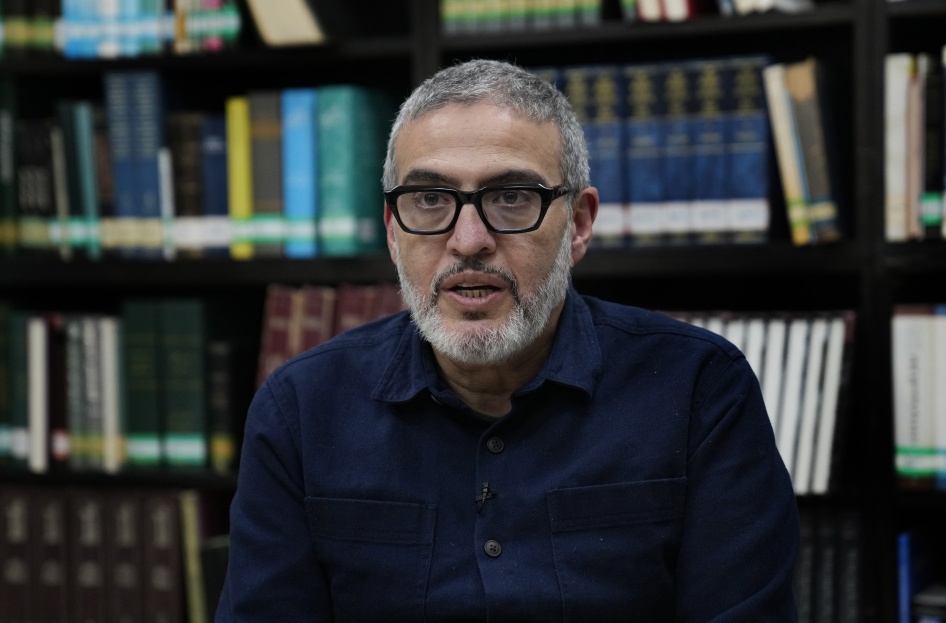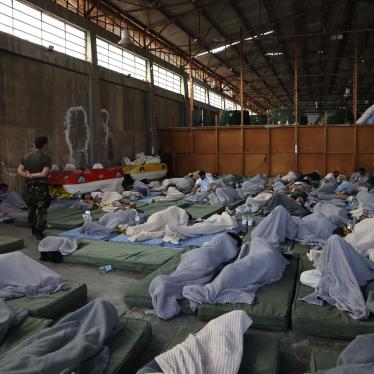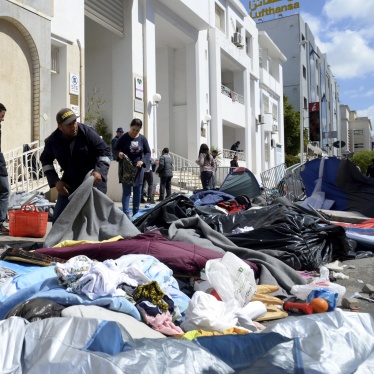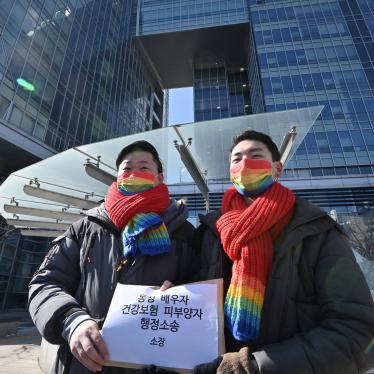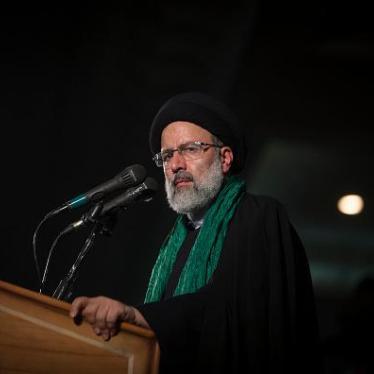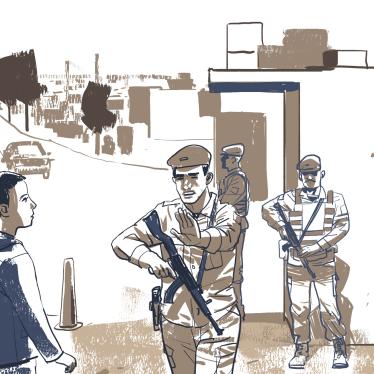(London, May 10, 2024) – Germany’s government needs to explain publicly if it has imposed a Schengen-wide entry ban on a prominent British-Palestinian surgeon and academic, Dr. Ghassan Abu Sittah, and, if so, the reasons why, Human Rights Watch said today. Dr. Abu Sittah has in recent weeks been denied entry to Germany and France and, on May 9, 2024, Dutch officials informed the Palestinian Ambassador to the Netherlands that Dr. Abu Sittah would not be allowed to enter the country on May 15 for an event at the Palestinian Embassy in The Hague.
Dr. Abu Sittah was denied entry to France on May 4, 2024, where he was due to speak about Gaza at the French Senate. He said on social media and to Human Rights Watch that French authorities at Charles de Gaulle airport informed him that he was barred from entering due to a year-long ban imposed by Germany. Dr. Abu Sittah’s lawyer told Human Rights Watch that German authorities had not informed him about the ban, nor disclosed the basis for it. A French official told the Associated Press that Germany’s entry ban applied across the Schengen area, a 29-country zone where internal border controls have generally been removed.
“Dr. Ghassan Abu Sittah has seen first-hand the atrocities taking place in Gaza,” said Yasmine Ahmed, UK Director at Human Rights Watch. “Germany should immediately explain why it has denied him entry and imposed this far-reaching ban on a leading health professional to speak in Berlin, Paris, and The Hague about what he witnessed in Gaza.”
The attempts to prevent him from sharing his experience treating patients in Gaza risks undermining Germany’s commitment to protect and facilitate freedom of expression and assembly and to nondiscrimination, Human Rights Watch said.
On April 24, Human Rights Watch wrote to the German government asking for an explanation of how its actions are consistent with Germany’s international and domestic obligations to protect and facilitate freedom of expression and assembly and nondiscrimination. Human Rights Watch has not received a response.
The Palestinian Ambassador to the Netherlands invited Dr. Abu Sittah to speak at an event in The Hague on the 76th anniversary of Nakba Day, which commemorates the more than 700,000 Palestinians who fled or were expelled from their homes and the more than 400 villages destroyed in the events surrounding the establishment of Israel in 1948. The director-general of The Hague-based intergovernmental Organization for the Prohibition of Chemical Weapons (OPCW) also invited Dr. Abu Sittah in May to provide a briefing on the use of white phosphorus by Israeli forces in Gaza. Dr. Abu Sittah said that he witnessed the use of white phosphorus munitions, which cause especially harmful injuries, while working in Gaza.
Dr. Abu Sittah said that the Dutch officials informed the Palestinian Ambassador to the Netherlands that he would not be permitted to enter the Netherlands for the Nakba Day event on May 15, but they would consider allowing him to enter for the meeting with the director-general of the OPCW on the condition that he only attend that meeting and leave immediately thereafter. On May 09, the Palestinian Mission to the Netherlands announced that they cancelled the event due to the Schengen-wide entry ban against Dr. Abu Sittah. The announcement states that Dr. Abu Sittah was also scheduled to meet with international organizations, civil society actors, Dutch members of Parliament, and universities.
Dr. Abu Sittah had planned to speak to the French Senate at the invitation of Green Party parliament members at a meeting about France’s responsibility for the application of international law in Palestine. Dr. Abu Sittah spoke at the meeting via video link.
Germany blocked Dr. Abu Sittah from entering the country on April 12 to deliver a speech at a Palestine conference in Berlin. He said German officials told him that if he were to attempt to participate in the conference remotely or if he sent in a video message to the conference, that would be a criminal offense for which he could be fined or imprisoned for up to one year. He told Human Rights Watch that the airport authorities told him that they were refusing him entry due to “the safety of the people at the conference and public order.” Dr. Abu Sittah said he plans to challenge the Schengen-wide entry ban in Germany.
Freedom of expression and peaceful assembly can only be restricted in limited circumstances, and the enjoyment of these rights cannot be subject to any discrimination, for example on the basis of ethnicity, religion, or political opinion. Any restriction must not put in jeopardy the right itself.
The UK and Scottish governments should press the German government to explain the legality of banning the British surgeon from entering its territory and imposing a Schengen-wide visa ban, Human Rights Watch said. The German government should also immediately clarify the reasons for, and process followed, in imposing such a ban.
Dr. Abu Sittah treated patients at al-Shifa and al-Ahli hospitals in Gaza in October and November 2023. He has provided evidence about what he witnessed in Gaza to the Metropolitan Police War Crimes Unit in London. The UK Police have said that they would pass any relevant information on to the International Criminal Court (ICC) as appropriate.
The ICC prosecutor confirmed that his office has, since March 2021, been conducting an investigation into alleged atrocity crimes committed in Gaza and the West Bank since 2014, and that his office has jurisdiction over crimes in the current hostilities between Israel and Palestinian armed groups that covers unlawful conduct by all parties.
The reported travel ban on Dr. Abu Sittah may hinder his ability to provide information about crimes in Gaza to other judicial authorities and bodies across Europe, Human Rights Watch said.
Following the Hamas-led October 7 attacks in southern Israel that included deliberate killings of civilians and taking civilians hostage, acts that amount to war crimes, Israeli forces have carried out repeated apparently unlawful attacks, including on medical facilities, personnel, and hospitals in Gaza. Israeli forces continue to block the provision of basic services and humanitarian assistance into Gaza, acts that amount to war crimes, including the use of starvation of civilians as a weapon of war.
“In the midst of ongoing atrocities in Gaza, countries should be prioritizing ending complicity and promoting accountability,” Ahmed said. “Instead, Germany, in blocking Dr. Abu Sittah from sharing his experience, is trying to block citizens from even hearing about the grave abuses taking place in Gaza. The UK government should immediately raise the reported ban with their German counterparts.”
